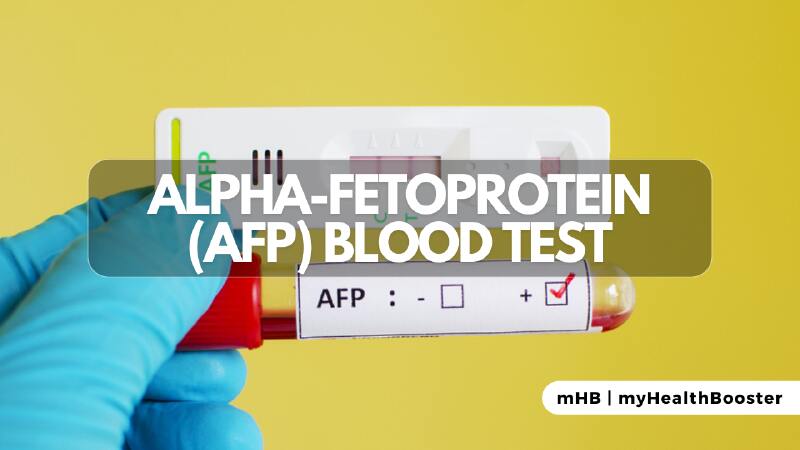The alpha-fetoprotein (AFP) blood test is a valuable diagnostic tool with applications in both pregnancy and oncology. This article delves into the intricacies of AFP, discussing its role in assessing fetal development and its utility as a tumor marker in certain cancers.
Alpha-Fetoprotein in Pregnancy
- Normal Fetal Development: AFP is a primary plasma protein in the human fetus, mainly produced by immature liver cells. Healthy adults exhibit low levels, but infants experience a temporary elevation at birth, returning to adult levels within the first year.
- Neural Tube Defects: Pregnant women with elevated AFP levels may indicate neural tube defects in the developing fetus, such as spina bifida or anencephaly. Twins or multiples can also contribute to increased AFP levels.
- Genetic Conditions: Abnormally low AFP levels in pregnant women may signal genetic conditions like Down syndrome, necessitating further tests. AFP is a crucial component of the triple or quad screen test performed between the 15th and 20th week of pregnancy.
Alpha-Fetoprotein (AFP) as a Tumor Marker
- Hepatocellular Carcinoma (HCC): High blood AFP levels (over 500 ng/ml) can indicate primary liver cancer. It is particularly relevant in chronic liver diseases like hepatitis B and C.
- Germ Cell Tumors: AFP is elevated in germ cell tumors of the testes and ovaries, including embryonal carcinoma and yolk sac tumors.
- Ataxia Telangiectasia: Elevated AFP levels are associated with this rare genetic neurodegenerative disease.
Measuring Alpha-Fetoprotein (AFP)
- Assays for AFP: Various tests measure AFP in blood, with normal levels below 10 ng/ml. Elevated levels may also be observed in acute and chronic liver diseases.
- Sensitivity for Liver Cancer: AFP’s sensitivity for hepatocellular carcinoma is around 70%, making it a useful screening tool, especially in high-risk groups.
- Diagnostic Limitations: A normal AFP does not exclude liver cancer, and some cancer variants may not exhibit elevated AFP levels. People with cirrhosis and abnormal AFP remain at a high risk of developing liver cancer.
- Monitoring Treatment Response: AFP levels can indicate the success of liver cancer treatment, with a rise suggesting recurrence.
Conclusion
The alpha-fetoprotein blood test serves dual roles in pregnancy and cancer diagnostics. Its ability to identify potential fetal abnormalities and act as a sensitive marker for certain cancers highlights its clinical significance. Understanding AFP’s applications empowers healthcare professionals to make informed decisions in managing both maternal and oncological health.
References
- United States. National Cancer Institute. “Tumor Markers.” Nov. 4, 2015.
- University of Rochester Medical Center. “Alpha-Fetoprotein Tumor Marker (Blood).”
